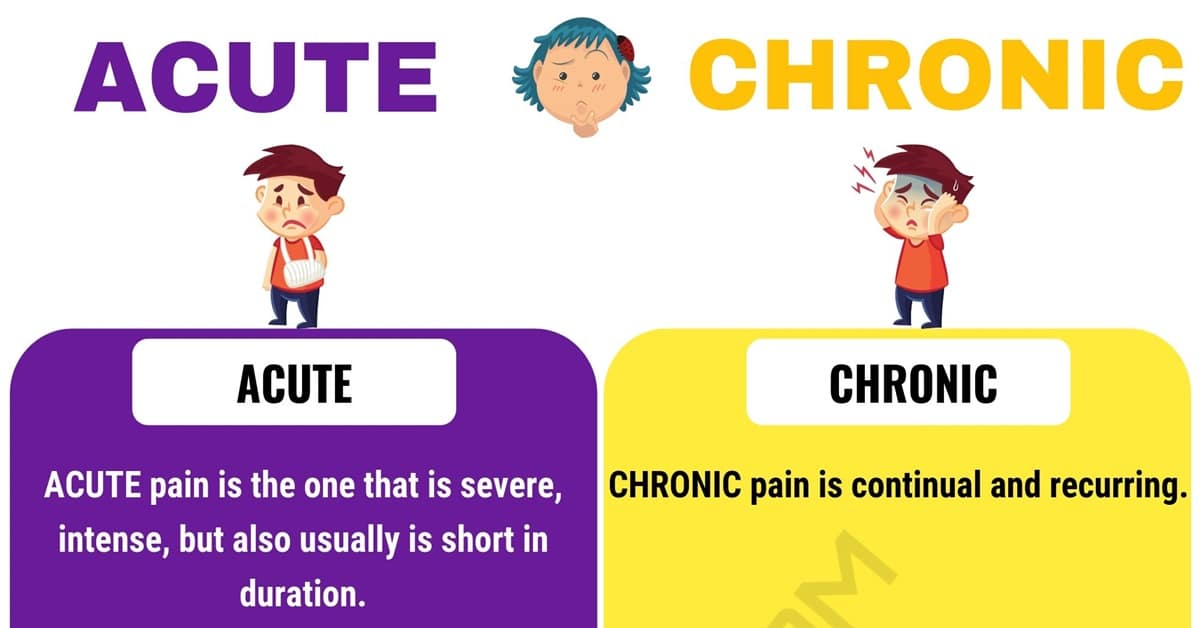Acute vs. chronic! When you are in some kind of pain, the best thing you can do for your body is go to a doctor. There, because a doctor cannot actually feel what you’re feeling, you will have to do your best to describe your problem, telling where and how badly it hurts. Two of the words that you can use to help the medical specialist understand your problem are acute and chronic. Though they both can be used to describe pain, they mean very different things, so it’s very important to choose the correct one because if you don’t, you will end up confusing your doctor.
Acute vs. Chronic
ACUTE pain is the one that is severe, intense, but also usually is short in duration. In contrast, CHRONIC pain is continual and recurring.
Examples:
- Most people with acute mental disorder can be treated at home.
- Patients were dying because of an acute shortage of nurses.
- This can happen with chronic diabetes or arterial disease.
- He had a chronic cough.
When to Use Acute vs. Chronic
You can also come across the adjective acute in Math, where it refers to an angle which is less than 90 degrees. In addition, this word can mean “highly focused”. However, its most common use is when describing pain. For example, you might say that, after watching TV and playing computer games for ten hours in a row, James had an acute headache. Or, that when Martha broke her leg playing basketball, she experienced acute pain. In both of these sentences, the pain we are talking about is intense but it’s happening only right now; it’s unlikely to return after some time if the incident that caused it isn’t repeated.
This is the main difference of acute from chronic pain: when the pain is chronic, it returns, even if you don’t necessarily do something to cause it. For instance, if Jason has chronic back pain, it means that his pain is recurring. Or, you could also say that someone you know suffers from chronic anxiety.
Now, how do you remember the difference between acute and chronic? One way to do so is by thinking that acute means intense, while chronic means recurring. Both acute and intense have the letter t, while both chronic and recurring have the letter r in them. Keeping this in mind, you’ll never get confused yourself and, most importantly, you’ll always be able to provide your doctor with correct information about your condition.
Acute vs. Chronic Examples
- She was taken to the hospital suffering from acute appendicitis.
- They may suffer sickness, vomiting or acute pain, but they do not die.
- I suffered a dislocation as acute as when I arrived in this country.
- He’s suffering from an acute infection of the lower respiratory tract.
- They think his mother’s illness is acute rather than chronic.
- Some of these patients benefit from referral to a chronic pain center.
- The man had a history of chronic bronchitis.
- Chronic pain can exacerbate or prolong the function disability of the patients.
- Chronic atrial fibrillation is associated with an increased risk of death.
- If left untreated the condition may become chronic.
Difference between Chronic vs. Acute | Picture

Acute vs. Chronic: Difference between Acute vs. Chronic








0 Comments